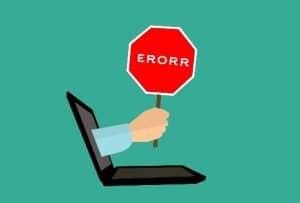
Typos and misspellings: the bane of a writer’s existence
Typos send a chill down the spine of any translator or proofreader. Catching an unintended slip-up at the last moment before submitting a project always combines an element of relief with a sense of dismay at nearly allowing an embarrassing mistake to slip through to publication. I am still slightly haunted by my recent near miss, which involved spotting in the nick of time a reference to “bras bands” with associated imagery of trumpeters in raunchy lingerie. But intentional typos or intentional misspellings are a different matter altogether.
Can intentional typos or intentional misspellings actually be a boon?
Indeed, could intentional typos have a positive side that a writer might harness? Several years ago, US academic and author Yascha Mounk, hypothesised on Twitter: “I have a theory that I inadvertently test at regular intervals: Small typos in tweets increase engagement because people stumble over them as they scroll their news feed, which makes them look at the tweet more closely. Do any linguists on here know whether this is plausible?”. The tweet has long since vanished, so maybe Mounk thought better of his idle speculation, but the premise was jotted down in my ever-expanding list of linguistic curiosities to investigate. Could this be why viral tweets so often have typos? Or is that simply a reflection of the high proportion of tweets of any variety that contain typos, viral or not? I suspect the latter might be closer to the truth but hard data on this seems difficult to come by.
Hard to track in practice
I set about researching whether deliberate typos might be a thing and whether accidental typos might boost audience engagement, but pinning down any evidence is fiendishly difficult, not least because almost every search strategy brings up articles on how to avoid spelling mistakes. In between endless tips on improving your proofreading skills, the few articles I could find on misspellings as a way to lure in the reader provided unsubstantiated claims such as “if you want an engaged audience and you use them sparingly, typos and misquotes can really draw your readers in.”
Advertising is a goldmine for deliberate misspellings
Advertisers are known to play with text for greater impact. A response on the English Language and Usage forum contrasts ad spelling and normal spelling to describe examples such as the brand “Froot Loops”, where fruit is rewritten to mirror the word loops and reflect the shape of the cereal itself. Wikipedia notes the term sensational spelling for precisely this kind of marketing strategy, perhaps epitomised by the infamous French Connection UK “FCUK” ad campaign that resulted in the Advertising Standards Authority branding the company “irresponsible” and declaring it would be vetting future promotional materials.
Stirring up a social media storm with intentional typos
But inventive wordplay is not quite what Mounk hinted at in his speculation about intentional typos. A better example comes from a Colorado-based telecoms company that put out ads offering “unlimited messages, minutes and data” then deliberately tweaked the spelling in a subset of these promotions to read “unlimited massages”. The spelling police on social media had a field day reporting the company’s supposed proofreading faux-pas and unwittingly fuelling engagement with the ads. The result was massive hype for the company’s carefully planned free massage party in Denver and a media buzz about their mobile phone service.
So a typo can apparently reap dividends in the commercial sector. Whether or not more mundane slip-ups are associated with increased reader engagement is up for debate and not likely to be a strategy your average language content professional will be pursuing just yet.
About the Author
Alison Tunley
Alison is a seasoned freelance translator with over 15 years of experience, specialising in translating from German to English. Originally from Wales, she has been a Londoner for some time, and she holds a PhD in Phonetics and an MPhil in Linguistics from the University of Cambridge, where she also completed her First Class BA degree in German and Spanish… Read Full Bio
Image: Pixabay








